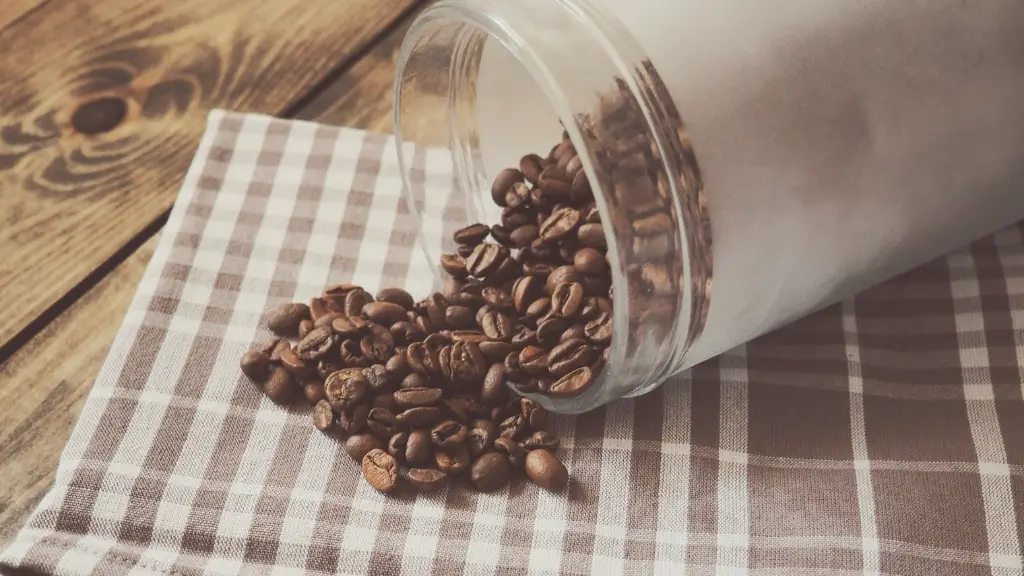Coffee: Its Benefits and Some of Its Downsides
Coffee is one of the most widely consumed caffeinated beverages in the world, with estimates of over 500 billion cups of coffee consumed annually. Many people rely on coffee to give them an energy boost and to stay awake and focused throughout the day. Coffee has been linked to providing many health benefits, but it can also be associated with negative health effects too. In this article, the pros and cons of coffee consumption will be explored.
Coffee contains a stimulant called caffeine, which is known to boost alertness and physical performance. Studies have shown that caffeine can significantly increase energy levels and improve cognitive performance, helping people become more productive throughout the day. It can also help reduce the risk of a number of health conditions, such as type 2 diabetes, Parkinson’s disease and liver cancer. Furthermore, some research suggests that moderate coffee consumption may contribute towards a longer lifespan.
On the other hand, too much caffeine can lead to a number of health problems. High caffeine intake has been linked to anxiety, depression and insomnia, as well as increased blood pressure and heart palpitations. And although the long-term mortality benefits of coffee drinking are still being researched, there is some evidence that drinking more than 4 to 5 cups a day can increase your risk of an early death. Furthermore, coffee can also cause an upset stomach and dehydration, if consumed in large amounts.
Overall, coffee is a safe beverage, when consumed in moderation. The benefits of occasional coffee consumption, such as increased energy and alertness, have been well established. Therefore, if you are looking for a quick morning pick-me-up, coffee can provide a good solution. Just be sure to drink it in moderation and to monitor your caffeine intake, so that you don’t exceed your daily recommended limit.
The Risks and Benefits of Coffee for Pregnant Women
Coffee is one of the most widely consumed beverages throughout the world. During pregnancy, most women cut down on or eliminate coffee consumption, due to its high caffeine content and its potential to cause harm to the baby. However, there is not enough evidence to suggest that coffee is entirely safe or unsafe for pregnant women to drink. In this article, we explore some of the risks and benefits of coffee consumption during pregnancy.
The effects of coffee on the baby are still unknown. Most sources advise that it is best for pregnant women to limit their caffeine intake, as it is thought that caffeine may cross the placenta, increasing the baby’s heart rate and affecting its growth. Studies also suggest that it can take more than ten hours for a pregnant woman’s body to metabolize the caffeine from one cup of coffee, meaning that there is potential for the baby to be exposed to elevated levels of the stimulant for extended periods of time. Therefore, it is best for pregnant women to avoid drinking coffee, if possible.
On the other hand, some studies have found that small amounts of caffeine can be beneficial for pregnant women. Limited research suggests that consuming less than 200mg of caffeine a day (approximately two cups of coffee) can help decrease a pregnant woman’s risk of diabetes and preterm birth. However, it is important to note that these studies are not definitive and any woman considering drinking coffee while pregnant should discuss their options with their doctor.
Overall, due to the lack of concrete evidence, the safest option is for pregnant women to avoid caffeine. However, if a pregnant woman is considering drinking coffee, they should speak to their doctor as they may be able to provide useful advice and guidance.
The Effects of Coffee on Mental Health
Coffee is known to boost mental performance, and many people rely on it to help them stay focused throughout the day. However, some studies have found that coffee can have a negative effect on the brain and that too much caffeine can lead to mental health issues.
Regular coffee consumption has been linked to mental health issues such as anxiety and depression. Too much caffeine can disrupt the natural balance of neurotransmitters, leading to mood swings, irritability and insomnia. Studies have also found that people who drink more than four cups of coffee a day are more likely to suffer from mental health problems than those who don’t drink coffee at all.
However, coffee can also be beneficial for mental health. Studies have shown that drinking coffee can improve alertness and cognitive performance, reducing the risk of age-related cognitive decline. Additionally, research suggests that moderate coffee consumption can help reduce the risk of suicide, as coffee helps to improve mood and reduce stress.
Overall, coffee can be beneficial for mental health in moderation, but it is important to consume caffeine in moderation, as drinking too much can have a negative effect on mental health. It is best to talk to a doctor for advice on how much caffeine is safe to consume.
The Effects of Coffee on Physical Performance
Coffee has long been linked to boosting physical performance. Studies have found that caffeine can significantly reduce fatigue, making it easier to exercise for longer. Additionally, it can increase alertness and physical strength, allowing people to gain more out of their workouts.
Some studies have also found that caffeine can help improve endurance. By boosting the body’s reserves of fatty acids, caffeine can increase the body’s energy uptake, meaning that people can work out for longer and more intensely. Furthermore, as caffeine can increase alertness, it can also help people focus on their workouts and push themselves further.
On the other hand, too much caffeine can have a negative effect on physical performance. Studies have found that consuming more than 400mg of caffeine a day can lead to elevated levels of dehydration and fatigue, making it harder for people to perform at their best. Additionally, for athletes, too much caffeine can lead to an increased risk of injury, as caffeine can mask pain.
Overall, caffeine can be beneficial for physical performance, but it is important to consume it in moderation. As with most things, you don’t need to overdo it to get the benefits – a moderate amount of caffeine can help boost physical performance.
The Environmental Impact of Coffee Production
The coffee industry has a significant environmental impact and can often be unsustainable. Coffee production requires large amounts of land, water and energy, and the cultivation of the plant is often done at the expense of biodiversity.
Coffee production requires large amounts of water – millions of litres of water are consumed in the production of just one cup of coffee. Water is used to irrigate the coffee plants, clean equipment and process the beans. Additionally, the water used in coffee production is often taken from rivers and natural sources, which can have a detrimental effect on local ecosystems.
Many coffee producers also rely on intensive agricultural methods to grow their crop, leading to the destruction of natural habitats and the loss of species. Furthermore, coffee production can lead to the release of harmful chemicals into the environment, such as fertilizers, herbicides and pesticides.
Overall, the environmental impact of coffee production can be devastating. Consumers should look for sustainable and eco-friendly sourcing when buying coffee, and farmers should strive to minimise their impact on the environment.
The Financial Impact of Coffee Consumption
Coffee is a popular beverage and many people rely on it to stay alert and focused throughout the day. However, regularly buying coffee can have a significant financial impact.
On average, it costs between $2 and $4 to buy a cup of coffee from a cafe or coffee shop. Although this may not seem like a lot, buying just one cup of coffee a day can quickly add up. The cost of buying one cup of coffee a week is approximately $104 a year, and the cost of buying one cup of coffee a day is a staggering $730 a year!
In comparison, buying coffee beans and equipment to make coffee at home can save money in the long run. Buying an espresso machine, grinder and coffee beans can cost more than $200, but it can save you a considerable amount over time.
Overall, coffee can have an impact on your finances. If you need to save money, it is best to buy beans and equipment to make coffee at home, as this can save you a substantial amount in the long run.
The Health Benefits of Coffee Alternatives
Coffee has a number of health benefits, but it can also cause negative health effects if consumed in high amounts. Many people are now turning to coffee alternatives, such as green tea, herbal tea and decaffeinated coffee, to get the same energy boost, but without the negative health effects.
Green tea is a popular alternative to coffee, as it contains less caffeine than coffee, but still provides a modest energy boost. Additionally, it is packed with antioxidants, which can help reduce the risk of a number of health conditions, such as type 2 diabetes, cancer and heart disease. Furthermore, green tea can also help to boost the metabolism, aiding weight loss.
Herbal teas are caffeine free and are often used as an alternative to coffee. Many herbal teas have health benefits, such as aiding digestion, helping to reduce stress, improving sleep and boosting energy levels. Furthermore, some herbal teas, such as rosemary, peppermint and ginger tea, are thought to help reduce inflammation in the body.
Finally, decaffeinated coffee is another popular alternative to coffee. Decaf coffee still contains some caffeine, but in much lower amounts than regular coffee. It still provides an energy boost, but without the potential negative health effects associated with high levels of caffeine.
Overall, coffee alternatives can be just as beneficial as coffee, as they provide a modest energy boost without the potential negative health effects. Therefore, if you are looking for a way to stay alert without having to worry about caffeine intake, coffee alternatives can be a great solution.





